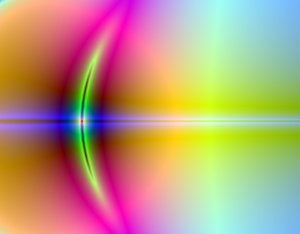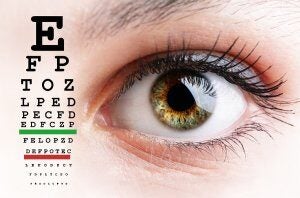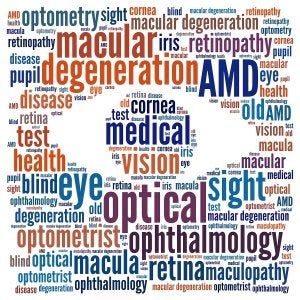-
Review Gerstein Eye!
We at Gerstein Eye do our very best to make sure you our patient is comfortable and happy. We’ll go out of our way to help you. If you like what we’ve done for you and your vision then help us out by leaving us a positive review on our Google My Business page so that we can help others just like you!
-
A Look at the LASIK Procedure
 Laser-assisted in situ keratomileusis (LASIK) is a highly popular and effective way of correcting vision problems while attaining freedom from dependence on eyeglasses and contact lenses. During your LASIK consultation in Chicago , your LASIK surgeon can walk you through the procedure and explain the technology he or she will use. There have been numerous advances in laser eye surgery technology, which have made the procedure safer, faster, and more effective.
Laser-assisted in situ keratomileusis (LASIK) is a highly popular and effective way of correcting vision problems while attaining freedom from dependence on eyeglasses and contact lenses. During your LASIK consultation in Chicago , your LASIK surgeon can walk you through the procedure and explain the technology he or she will use. There have been numerous advances in laser eye surgery technology, which have made the procedure safer, faster, and more effective.Identifying Ideal Candidates
Many people are good candidates for LASIK eye surgery; however, only your ophthalmologist can determine if it’s right for you. You may be a good candidate if you have refractive errors, which are nearsightedness, farsightedness, and astigmatism. The LASIK procedure corrects these vision problems by reshaping the cornea, which allows the eye to more effectively focus rays of light on the retina.
Understanding the Procedure
Before going ahead with the LASIK procedure, your ophthalmologist will make sure you understand what’s involved. First, the ophthalmologist will administer a topical anesthetic to the eyes to numb them. Then, he or she will place an eyelid holder between the eyelids. This prevents you from blinking during the procedure. A suction ring placed on the eye prevents the eye from moving, and lifts and flattens the cornea. Although this procedure is painless, you may feel some pressure at this point. Additionally, your vision may become dim. This is normal. Then, the ophthalmologist uses a special laser to create a flap on the cornea , which allows the laser to shape the corneal tissue. The flap is sealed back in place without stitches. The entire procedure takes only a few minutes per eye.
Recovering from the Procedure
After the LASIK procedure, you should have someone drive you home. Plan to spend the remainder of the day resting quietly at home. It’s critical to avoid rubbing your eyes because this can dislodge the corneal flap. To protect your corneas, your ophthalmologist will give you an eye shield to wear over each treated eye. You’ll also receive instructions on applying eye drops to relieve any dryness and facilitate healing.
-
Symptoms of Cataracts
Cataracts are a common reason why people visit an ophthalmologist near Chicago . Cataracts occur when the lens of the eye becomes cloudy. They develop very gradually. Although they lead to vision loss, this can occur over a period of years. As time passes, individuals may notice that they have problems driving, particularly at night. They may notice blurry or dim vision, sensitivity to glare, double vision, or seeing “halos” around sources of light. Because these symptoms can eventually interfere in day-to-day activities, it’s important to consult an eye doctor as soon as you begin to notice them.
Watch this video to hear a cataract surgeon discuss the signs and symptoms of cataracts. He explains the gradual onset of the symptoms and discusses the activities these symptoms may interfere with. If you suspect you could have cataracts, you can talk to an ophthalmologist about cataract surgery.
-
The Importance of Routine Eye Exams
 If you experience any eye abnormalities, such as eye pain or a sudden loss in vision, you should see an eye doctor promptly. However, it’s also important to schedule routine visits with an ophthalmologist near Chicago. There are many eye conditions that do not result in symptoms or may not cause symptoms right away. By visiting an ophthalmologist for routine eye exams, you’re safeguarding your healthy vision for a lifetime.
If you experience any eye abnormalities, such as eye pain or a sudden loss in vision, you should see an eye doctor promptly. However, it’s also important to schedule routine visits with an ophthalmologist near Chicago. There are many eye conditions that do not result in symptoms or may not cause symptoms right away. By visiting an ophthalmologist for routine eye exams, you’re safeguarding your healthy vision for a lifetime.Vision
An important component of a routine eye exam at an optical center involves checking your vision. For children, this is particularly critical because normal vision development has a direct effect on academic success. Children with impaired vision cannot see the chalkboard or their homework assignments clearly, and they may fall behind. However, vision exams for adults are also necessary to ensure that their current prescription is correct. Without an accurate prescription for eyeglasses or contact lenses, it can be difficult to fulfill job responsibilities and carry out day-to-day tasks.
Eye Diseases
A routine eye exam involves much more than just checking your vision. Your eye doctor will also evaluate your eyes for any signs of diseases. He or she will check for signs of glaucoma, retinal disorders, macular degeneration, and diabetic retinopathy. By detecting these eye diseases as early as possible, you can become informed about your treatment options and ways of preventing further damage.
Eye Problems
There are many other eye conditions that your ophthalmologist may detect during a routine eye exam. For example, your eye doctor can tell if you have strabismus, or an improper eye alignment. This condition interferes with depth perception and may lead to amblyopia, which in turn can cause irreversible vision impairment.
Systemic Conditions
Did you know that eye doctors can often detect systemic health problems in patients? An ophthalmologist can let you know if your eyes are displaying minute changes that could signal a serious health issue, which means you can begin receiving treatment from your physician as soon as possible. For example, an ophthalmologist can often detect the early signs of high cholesterol levels and high blood pressure. Eye doctors can also assess whether the tiny blood vessels in your eyes are leaking and whether the macula is swollen. These changes indicate that you may have diabetes.
-
Detecting Macular Degeneration
 Macular degeneration is a common type of eye disease that leads to vision loss. Macular degeneration is one of the reasons why it’s important to receive regular eye care near Chicago. By scheduling exams on an annual basis, your eye doctor can detect signs of the disease early. There are many tests your eye doctor can use to diagnose macular degeneration. Generally, patients will first undergo a visual acuity exam to assess how well you see distant objects. Then, you can expect to undergo a dilated eye exam at the optical center .
Macular degeneration is a common type of eye disease that leads to vision loss. Macular degeneration is one of the reasons why it’s important to receive regular eye care near Chicago. By scheduling exams on an annual basis, your eye doctor can detect signs of the disease early. There are many tests your eye doctor can use to diagnose macular degeneration. Generally, patients will first undergo a visual acuity exam to assess how well you see distant objects. Then, you can expect to undergo a dilated eye exam at the optical center .To dilate your eyes, the ophthalmologist will apply special eye drops. You’ll need to wait for a few minutes to let the eye drops work. Then, the eye doctor will use a device called an ophthalmoscope, which allows him or her to evaluate the retina. If your doctor notices abnormalities that may indicate macular degeneration, he or she may use an Amsler grid. If you have macular degeneration, the lines on the grid may appear wavy or they may disappear altogether. Sometimes, eye patients are asked to undergo fluorescein angiography and optical coherence tomography (OCT), which involves injecting dye into a vein and taking a picture of the macula. This is helpful for diagnosing the wet form of macular degeneration.
